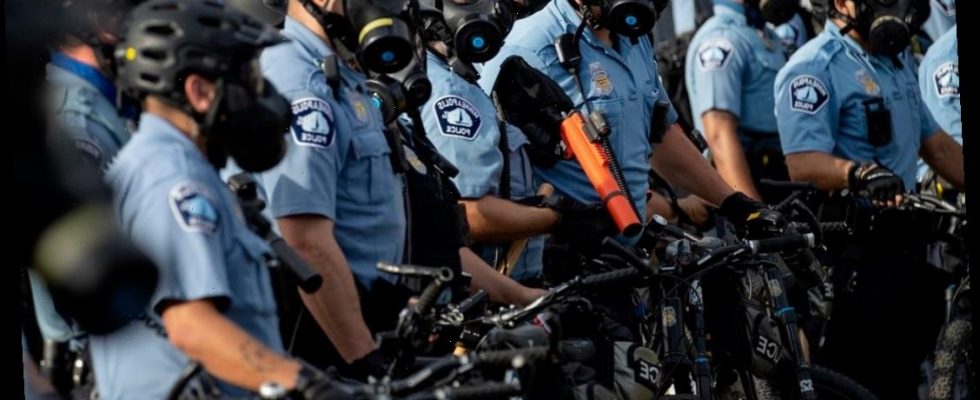

By Chief Joel F. Shults, Ed.D.
Recent surveys of police officers are showing, to no one’s surprise, that stress and anxiety are hitting historic highs for our nation’s police officers. While many police leaders are taking steps to provide support for their public servants, there is no end to the challenges facing those under the weight of the badge. Here are some areas that administrators and communities should consider.
Financial
An area often overlooked is the financial stress facing police officers. While wages and benefits have improved significantly over the years for law enforcement, the burdens of debt and the threat of financial collapse can loom ominously.
Education on financial planning and management should be made available to every police family. With the increased potential for lawsuits and firings, poor services for injured officers, and the unfortunate reality of death on the job, officers need to be intentional with their income.
Many officers rely on secondary employment to supplement their income. While this is great for providing “extras” when officers rely on their police credentials for working overtime or off-duty employment there is a risk of that supplement disappearing if they lose their job or are on suspension during internal investigations. Budgeting with an emergency fund in place is essential, but budgeting is a skill that has escaped many Americans.
Officers should be familiar with their life insurance benefits, including the federal death benefit for public safety personnel. Insurance outside of the workplace should be in place as well. Educational materials and resources can be made available at little cost to an agency.
Family
Divorce and relationship conflicts are epidemic in policing. Officers should be aware of counseling services available through their employer and in the community. Dependents in law enforcement families deserve encouragement, support, and recognition. Officers should have pre-arranged plans for emergency notification, especially if their life situation changes. Those who are in relationships not legally recognized should know that laws protecting spouses are not automatically extended to other types of relationships and officers’ wishes may need to be spelled out separately as a matter of record.
Police families are well aware of the sacrifices they must endure when their officer misses holidays and special events. Where possible, scheduling accommodations should be considered to keep families connected. These relationship supports are important to officer well-being and performance.
Physical
Policing can be very physically demanding on occasions. Although patrol and investigations are mostly sedentary, the burst of activity from a sudden pursuit or struggle is especially taxing on the human system. Allowing and encouraging opportunities for physical fitness should be part of an overall wellness strategy for police departments. The return on this investment will be fewer sick and injury days lost, as well as the proven benefits of exercise on mental health.
Erratic schedules and a lot of overtime demands can erode performance, and sleep deprivation is a serious health and performance concern for shift workers. Education on fitness and nutrition strategies is essential for endurance and longevity.
Spiritual
Chaplaincy services are available at many agencies. Chaplains should be well trained in law enforcement ministry with the understanding that their services are for all officers regardless of their faith preferences or absence thereof. Regardless of one’s beliefs, there are existential and moral crises that every officer faces. Having the availability of chaplain services can be a reassurance that departments recognize this aspect in the life of our police officers.
In addition to confidential counseling services for substance abuse and depression, chaplains can be a useful partner in preventing long-term problems, including the risk of suicide or other self-destructive behavior.
Brain health
The physical aspects of stress and trauma are often overshadowed by the misunderstanding that these issues are “just emotional”. Education on the anatomical realities of what happens to the brain chemistry and body is important to overcome resistance to “touchy-feely” programs that are perceived by many officers as catering to weakness.
Emotional
Recognizing the physiology of stress doesn’t remove the emotional aspect of mental health. Pessimism, framing occurrences with a consistent world view, and taking things personally are challenges to any mature adult. Officers and their leaders can encourage one another in healthy thinking patterns that go hand in hand with physical and mental health.
Support staff
Communication officers and other civilian support staff are often overlooked when it comes to support and encouragement in police operations. Their vicarious stress and deadlines can lead to the same unhealthy lifestyles and coping mechanisms.
The community can help
Holistic wellness is not just the job of police administrators. Citizen support of police officers is a vital component of job satisfaction and performance for a police officer. Knowing that there is appreciation and gratitude for their service can make a world of difference. A card, a word of encouragement, or thoughtful gifts to the department are always appreciated – now, more than ever.